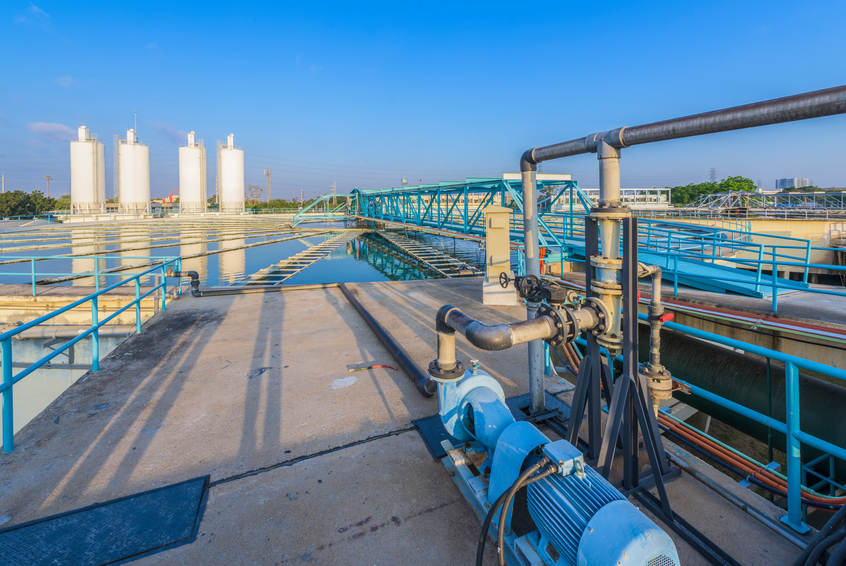British Columbia Industrial 19 PDH Discount Package
Courses in this Package
Detectors and Indicators for Industrial Facility Systems (D05-002)
Pneumatic Conveying Systems (M05-010)
Process Controls for Industrial Facility Systems (D05-001)
Reactor Kinetics and Operation (N03-002)
General Principals of Engineering Ethics for British Columbia Professional Engineers (BC1-001)

This online engineering PDH course provides a basic understanding of instrumentation and control necessary for safe operation and maintenance of energy facilities and their support systems. In particular, this course describes the principles of construction, operation, and failure modes for various types of detectors including temperature detectors, pressure detectors, level detectors, flow and position indicators.
This 5 PDH online course is applicable to mechanical, industrial and nuclear engineers, construction and design personnel, technical staff and facility operators who are interested in gaining a better understanding of detector applications.
This P.Eng. continuing education course is intended to provide you with the following specific knowledge and skills:
- Learning the different types of equipment detectors and indication circuits
- Understanding the operation of equipment detectors and indication circuits
- Knowing the failure modes of equipment detectors and indication circuits
In this professional engineering CEU course, you need to review Modules 1 through 5 of the Department of Energy Publication DOE-HDBK-1013/1-92, "Instrumentation and Control".
Upon successful completion of the quiz, print your Certificate of Completion instantly. (Note: if you are paying by check or money order, you will be able to print it after we receive your payment.) For your convenience, we will also email it to you. Please note that you can log in to your account at any time to access and print your Certificate of Completion.

This online engineering PDH course presents an overview of pneumatic material handling system and summarizes the main hardware and technology attributes for efficient conveying.
From pebble lime to peanuts, from coal to baby powder - and everything in between - pneumatic conveying has long been a popular choice for moving bulk materials, either from storage facilities to a process unit, or between process units. Two most distinct categories of pneumatic conveying can be described as either dilute-phase or dense-phase systems. These have been developed over the past few decades to take advantage of the different behavioral properties of bulk materials and also to meet the increasingly demanding requirements of industry in the areas of system reliability, product quality control and energy efficiency. In particular, dense phase operation (with its relatively low velocities) is usually preferable if the conveyed material degrades easily or is highly abrasive. Selecting the correct pneumatic conveying regime for your requirements is a vital decision for a successfully designed system.
This 5 PDH online course is applicable to process/production personnel, mechanical and chemical engineers, and operation and maintenance engineers in the following industries who are involved in the following industries: chemical, petrochemical, agro-chemical, and specialty chemical, biotechnology, pharmaceuticals and cosmetics, food processing, mining/mineral processing, plastics processing, bulk storage, pulp and paper.
This P.Eng. continuing education course is intended to provide you with the following specific knowledge and skills:
- Understand the advantages of pneumatic conveying systems over mechanical conveying
- Understand the characteristics, limitations and fundamental design differences of dilute phase, dense phase and air activated gravity conveying
- Understand the design approach and typical specifications of positive pressure, vacuum and combination pull-push dilute phase conveying systems
- Understand the factors influencing the performance of pneumatic conveying systems and learn how conveying rates are affected by distances
- Understand the terms "saltation" and "choking" as applicable to pneumatic systems.
- Learn by example - the methodology for selection of prime mover for a dilute phase pneumatic conveying systems
- Gain understanding of pneumatic conveying system components such as fans, airlocks, separators, piping and filters
- Understand the three key reasons to use dense phase systems
- Understand the different modes of dense phase conveying
- Learn top ten tips for the design of dilute and dense phase conveying systems
- Learn how to estimate pressure drop in dilute phase conveying system
In this professional engineering CEU course, you need to review the course document titled "Pneumatic Conveying Systems".
Upon successful completion of the quiz, print your Certificate of Completion instantly. (Note: if you are paying by check or money order, you will be able to print it after we receive your payment.) For your convenience, we will also email it to you. Please note that you can log in to your account at any time to access and print your Certificate of Completion.

This online engineering PDH course provides a basic understanding of instrumentation and control necessary for safe operation and maintenance of energy facilities and their support systems. In particular, this course describes the principles of operation for control systems used in evaluating and regulating changing conditions in a process.
This 5 DH online course is applicable to industrial and nuclear engineers, construction and design personnel, technical staff and facility operators who are interested in gaining a better understanding of process controls.
This P.Eng. continuing education course is intended to provide you with the following specific knowledge and skills:
- Principles of control systems
- Control loop diagrams
- Types of control systems
- Controllers
- Valve actuators
In this professional engineering CEU course, you need to review Module 7, "Process Controls" of the Department of Energy Publication DOE-HDBK-1013/2-92, "Instrumentation and Control".
Upon successful completion of the quiz, print your Certificate of Completion instantly. (Note: if you are paying by check or money order, you will be able to print it after we receive your payment.) For your convenience, we will also email it to you. Please note that you can log in to your account at any time to access and print your Certificate of Completion.

This online engineering PDH course introduces specific topics including sub-critical multiplication, reactor kinetics, and reactor operation.
Subcritical multiplication is the phenomenon that accounts for the changes in neutron flux that takes place in a subcritical reactor due to reactivity changes. It is important to understand subcritical multiplication in order to understand reactor response (reactor kinetics) to changes in conditions. Reactor Kinetics is the response of neutron flux and reactor power to changes in reactivity. As such, it is also important to understand the principles that determine how a reactor responds during all modes of operation.
This 3 PDH online course is applicable to industrial and nuclear engineers, construction and design personnel, technical staff and facility operators who are interested in gaining a better understanding of the reactor operations.
This P.Eng. continuing education course is intended to provide you with the following specific knowledge and skills:
- Learning about sub-critical multiplication
- Understanding reactor kinetics
- Understanding reactor modes of operation
In this professional engineering CEU course, you need to review Module 4, "Reactor Theory (Reactor Operations)" of the Department of Energy Publication DOE-HDBK-1019/2-93, "Nuclear Physics and Reactor Theory".
Upon successful completion of the quiz, print your Certificate of Completion instantly. (Note: if you are paying by check or money order, you will be able to print it after we receive your payment.) For your convenience, we will also email it to you. Please note that you can log in to your account at any time to access and print your Certificate of Completion.

This online engineering PDH ethics course is (1) the study of moral issues and decisions confronting individuals and organizations involved in engineering and (2) the study of related questions about moral conduct, character, ideals and relationships of peoples and organizations involved in technological development (Martin and Schinzinger, Ethics in Engineering).
This course will address the principles of engineering ethics that every engineer is expected to live by when practicing their profession. It will also present unique ethical case studies randomly selected to demonstrate ethical challenges for professional engineers and alternatives to address these challenges.
This 1 PDH online course is applicable to Professional Engineers licensed in the Province of British Columbia and who are required to demonstrate continuing professional competency in engineering ethics as a condition of their license renewal. For each renewal period, every licensee must complete at least one (1) professional development hour relative to the principals of professional responsibility, conduct and ethics.
This P.Eng. continuing education course is intended to provide you with the following specific knowledge and skills:
- Understanding the definition of engineering ethics
- Learning how to hold the utmost safety, health, and welfare of the public when practicing your profession
- Familiarizing with the conditions to issue public statements
- Gaining a general overview on how to represent each employer or client as a faithful trustee
- Learning how to build your professional reputation on the merit of your services
- Understanding professional ethical practices through presenting realistic case studies
- Learning how to handle proprietary information and intellectual property rights
Upon successful completion of the quiz, print your Certificate of Completion instantly. (Note: if you are paying by check or money order, you will be able to print it after we receive your payment.) For your convenience, we will also email it to you. Please note that you can log in to your account at any time to access and print your Certificate of Completion.